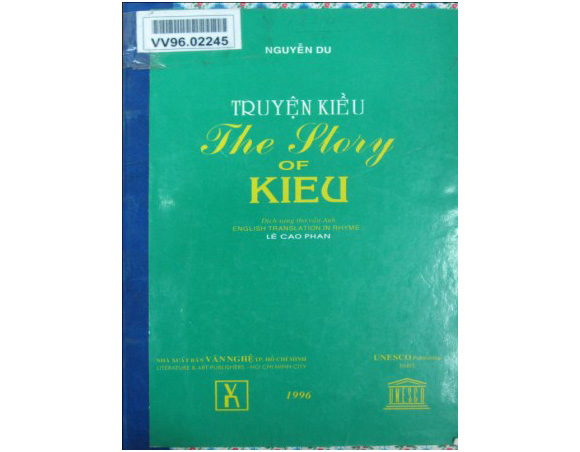Ngày 27 tháng 07 năm 2015

Foreword
by Phạm Quất Xá
Laureate of the French Academy (Poetry)
Lê Cao Phan is not just a simple translator - his multifarious talents - musician, painter - have contributed to his reputation in Việt-Nam where he now lives.
A strong creative force synthetizes sounds and shapes, colours and words - the pot of ink into which dips the brush of imagination with its magic touch : such is the case of Nguyen Du’s 19th century work (1812) - a great poem of more than 3000 verses of superb quality.
Even though Lê Cao Phan never set foot on British soil, he was well equipped for this formidable challenge.
He accepted this task with trepidation, mainly because of his great love of British poets such as Ted Hughes, Sylvia Platt and of course, Shakespeare, Milton, Pope, Scott, Shelley andKeats. Thank* also to his passionate admiration for Blake, Yeats and Tagore., whom Lê Cao Phan has always considered as being amongst the greatest poets of our time, the translator was then ready for this strange encounter with his ancestor in the love - hate relationship that lasted for no less than eleven years.
“Love” - for they had the same emotions in their souls, joy and sorrow. "Love” for Lê Cao Phan harboured an unqualified admiration for the author ọf Kim-Vân-Kiều.
“Hate” - Lê Cao Phan simply stood in great fear in the shadow of the Master, suffering constant anguish lest he not fulfill his translation with fidelity and haunted by a feverish restlessness at being able only to follow Nguyễn Du through a strange mystic communion. Still more “hate” for, paradoxically, Lê Cao Phan disliked ghosts, yet he was doomed to endless encounters with Nguyên Du's phantom during the autumn of his life.
From this love - hate relationship emerged a splendid product in which flamboyant phrases often bordered on the sublime. The conspiracy of words and ideas interfused and merged to express similar touches of sensitivity, similar disappointment at unfulfilled ambitions which resulted eventually in re-writing the two destinies unified by the same bitterness and the same love.
Certainly there are some small imperfections in the ’ translation, but how could anyone measure up to the sublime ’ level of the Vietnamese language employed with such brilliance by Nguyễn Du ? Yes, there are some rare imperfections as when Lê Cao Phan introduced various American terms and mingled them with the so-called “pure” English ones.
To deviate a little, let us recall a liberal paraphrasing of an Bernard Shaw quotation : the English and the American form a single nation separated by two different languages ! It would nevertheless have been preferable for the translator to have left these imperfections untouched. That would impart a more original flavour and, at the same time, reflect the historical backdrop of his country which has the unique privilege -acquired at the priceless cost of human suffering - of having been exposed to a rare diversity of cultures through the passage of storms and turbulences.

